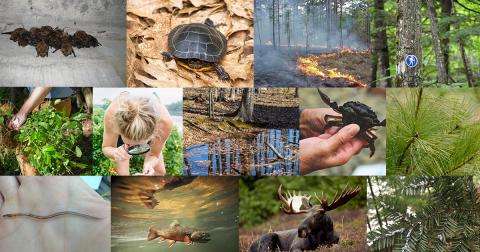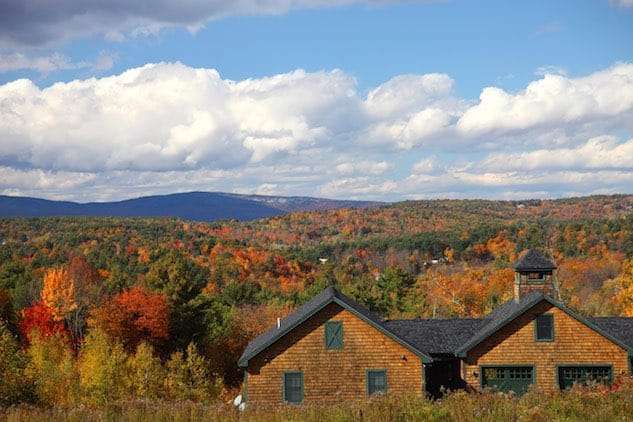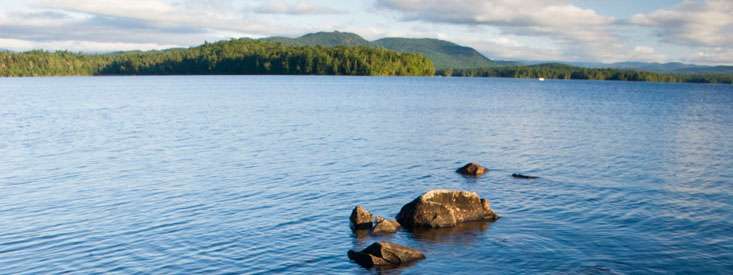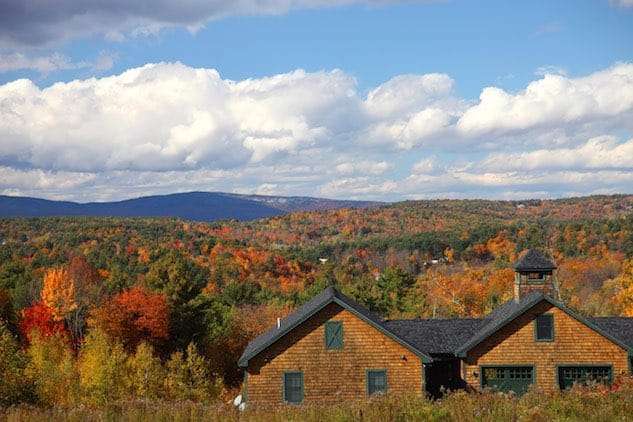If you’re considering living in New Hampshire, there are a few things you should know. Located on the east coast of the United States, this state has a small population and a unique climate. With mild summers and long, cold winters, it’s not for the faint of heart. While fresh water is abundant, some areas may have groundwater contamination. Wildlife enthusiasts will find a diverse population, including deer, bears, moose, and various fish species. However, living off-grid may not be ideal due to high property prices and cost of living. Despite this, New Hampshire boasts a low crime rate and good road access, although heavy snowfall can cause temporary closures. While it may have its challenges, living in New Hampshire offers a unique blend of natural beauty and opportunities for adventure.

Location
Geographical Location
New Hampshire is located on the east coast of the United States in the northeastern part of the country. It shares its borders with Vermont to the west, Maine to the east, Massachusetts to the south, and the Canadian province of Quebec to the north. The state provides stunning natural landscapes with its picturesque mountains, rolling hills, and beautiful lakes.
Population Size
Although New Hampshire may not be densely populated compared to other states, it still boasts a charming community. With a small population of around 1.3 million people, the state offers a close-knit atmosphere where residents can truly engage with their neighbors. Only one city in New Hampshire has a population over 100,000, giving the state a small-town feel with a strong sense of community.
Accessibility and Road Access
New Hampshire is well-connected in terms of accessibility and road access. The state has an extensive network of highways, making it easy to travel to different areas within and outside of New Hampshire. However, it’s important to note that during the winter months, heavy snowfall can cause temporary closures or delays on certain roads. Overall, road access in New Hampshire is reliable and convenient for residents and visitors alike.
Climate
Humid Continental Climate
New Hampshire experiences a humid continental climate. This means that the state has four distinct seasons, with mild summers and long, cold winters. In the summer months, temperatures typically reach pleasant highs, making it a great time for outdoor activities and exploration. However, winters in New Hampshire can be quite harsh, with heavy snowfall and cold temperatures. It’s important to be prepared for winter weather conditions and take necessary precautions during this time.
Seasonal Variation
One of the unique aspects of New Hampshire’s climate is its seasonal variation. The state sees the full spectrum of seasons, allowing residents and visitors to experience the beauty and diversity of each time of year. From vibrant autumn foliage to the tranquility of a snow-covered landscape, New Hampshire offers a range of experiences that embrace the changing seasons. It’s important to dress accordingly and plan activities according to the season to fully enjoy everything that New Hampshire has to offer.

Wildlife
Diverse Wildlife Population
New Hampshire is home to a diverse wildlife population, making it a haven for nature enthusiasts and animal lovers. The state’s forests and protected areas provide habitats for various species, ensuring the preservation of its rich biodiversity. From majestic white-tailed deer and awe-inspiring black bears to the iconic moose, New Hampshire offers countless opportunities for wildlife sightings and appreciation.
Animal Species
In addition to deer, bears, and moose, New Hampshire is also home to other animal species such as foxes, bobcats, coyotes, raccoons, and various bird species. These animals play a crucial role in the state’s ecosystem and contribute to its overall natural beauty. Residents and visitors can enjoy observing these animals in their natural habitats while practicing responsible and ethical wildlife viewing.
Fish Species
New Hampshire’s freshwater bodies are teeming with a variety of fish species, making it a popular destination for fishing enthusiasts. The state’s lakes and rivers are abundant with trout, bass, pike, catfish, and many more fish species. Whether you prefer fly fishing alongside peaceful streams or casting your line in the depths of a serene lake, New Hampshire offers diverse fishing opportunities for all levels of experience.
Freshwater Availability
Abundance of Freshwater
New Hampshire is blessed with an abundance of freshwater resources. The state is home to numerous lakes, rivers, and streams, making it a paradise for water lovers and outdoor enthusiasts. Whether you enjoy swimming, boating, fishing, or simply relaxing by the water’s edge, New Hampshire’s freshwater resources provide ample opportunities for recreational activities and a connection to nature.
Groundwater Contamination
While New Hampshire enjoys abundant freshwater resources, it is important to note that certain areas may experience groundwater contamination, particularly from local farming practices. It is crucial to stay informed and take necessary precautions when consuming water from private wells or areas that may be affected by agricultural activities. Regular water testing and filtration systems can help ensure the safety and quality of drinking water in these areas.

Living Costs
Cost of Living
New Hampshire’s cost of living is generally higher than the national average. The state’s desirable location, quality of life, and various amenities contribute to the higher costs associated with living in New Hampshire. It is important to carefully consider and plan for expenses such as housing, transportation, groceries, healthcare, and other necessities when budgeting for life in the state.
Housing
Housing costs in New Hampshire can be significant, especially in popular areas or cities. Renting or purchasing a home in desirable locations may require a larger budget. However, there are also more affordable housing options available in less populated areas. It’s important to research and explore different neighborhoods and communities to find housing that best fits your needs and budget.
Utilities
Utilities in New Hampshire can also contribute to the overall cost of living. Expenses such as electricity, heating, water, and internet services should be considered when budgeting for daily expenses. Keep in mind that certain areas may have specific utility providers, so it’s essential to contact local companies to set up services and understand associated costs.
Employment
Unemployment Rate
New Hampshire has a relatively low unemployment rate compared to the national average. The state’s strong economy, diverse industries, and entrepreneurial spirit contribute to ample job opportunities for residents. However, it is important to note that job availability may vary depending on the specific field or industry.
Minimum Wage
New Hampshire’s minimum wage is currently set at the federal minimum of $7.25 per hour. It’s important to consider this wage when budgeting and planning for living expenses in the state. However, it’s worth noting that certain industries may offer higher wages depending on the job position, experience, and qualifications.
Major Industries
New Hampshire’s major industries include manufacturing, tourism, agriculture, and healthcare. The state has a rich history of manufacturing, with various companies specializing in industries such as aerospace, electronics, and automotive. Tourism plays a vital role in New Hampshire’s economy, particularly during the winter ski season and the autumn foliage season. Additionally, agriculture and healthcare provide significant employment opportunities within the state.

Crime and Safety
Crime Rate
New Hampshire has a relatively low crime rate compared to the national average. The state’s commitment to public safety, strong law enforcement presence, and community engagement contribute to a safe living environment for residents. However, it is always important to exercise caution and practice common-sense safety measures to ensure personal well-being.
Comparisons
When comparing New Hampshire’s crime rate to other states, it consistently ranks among the safest states in the country. The state’s commitment to maintaining a secure community and fostering a sense of trust and respect among its residents contributes to its positive safety record. Whether you are considering a move to New Hampshire or visiting the state, you can feel confident in its reputation for safety and security.
Natural Disasters
Floods
New Hampshire is susceptible to floods, particularly in areas near rivers and low-lying regions. Heavy rainfalls combined with melting snow can result in increased water levels and potential flooding. It is important to stay informed about weather conditions and be prepared for potential flood risks, especially during certain seasons or weather events.
Storms
New Hampshire experiences various storms throughout the year, including thunderstorms and winter storms. Thunderstorms can bring heavy rain, strong winds, and lightning, while winter storms can bring significant snowfall and icy conditions. It’s essential to stay updated on weather forecasts and follow safety guidelines during these weather events to ensure personal safety and minimize property damage.
Tropical Storms
Although New Hampshire is not located in a tropical region, it can be indirectly affected by the remnants of tropical storms or hurricanes that move up the east coast. These systems can bring heavy rainfall, strong winds, and potentially cause flooding in certain areas. It’s important to monitor weather updates and follow any advisories or evacuation notices issued by local authorities during these events.
Tornadoes
While tornadoes are not as common in New Hampshire compared to other parts of the United States, they can still occur. These powerful and destructive tornadoes can develop quickly, causing significant damage. It is crucial to be aware of tornado warnings, seek shelter in a safe location, and have a plan in place to ensure personal safety during such events.
Ice Storms
New Hampshire is no stranger to ice storms, particularly during the winter months. Freezing rain can result in the accumulation of ice on surfaces, trees, and power lines, causing widespread damage and power outages. It is important to stay informed, have emergency supplies on hand, and take necessary precautions during ice storms to ensure personal safety and well-being.
Blizzards
The long, cold winters in New Hampshire can bring blizzard conditions with heavy snowfall and strong winds. These blizzards can limit visibility, create hazardous road conditions, and potentially cause power outages. It’s essential to be prepared with emergency supplies, follow weather forecasts, and heed any advisories or warnings during blizzard events to stay safe and minimize the impact of these weather events.

Off-Grid Living
Legality
Off-grid living is generally legal in New Hampshire, allowing individuals to live independently without relying on public utilities. The state recognizes the desire for self-sufficiency and respects the right to embrace an off-grid lifestyle. However, it is essential to research and understand local regulations and zoning laws that may apply to specific areas within New Hampshire to ensure compliance and avoid any potential conflicts.
Limitations
While off-grid living is generally permitted in New Hampshire, there may be certain limitations and regulations depending on the location and property requirements. It is crucial to thoroughly research and understand any constraints or restrictions that may apply in the desired area for off-grid living. These limitations may include specific building codes, access to utilities, waste management, and other factors that could impact off-grid living arrangements.
Property Requirements
When considering off-grid living in New Hampshire, it is important to carefully evaluate property requirements. Factors to consider may include access to fresh water sources, suitable land for sustainable practices, and potential zoning restrictions. Proper due diligence and consultation with local authorities or professionals can help ensure that the chosen property meets the necessary requirements for a successful off-grid lifestyle.




